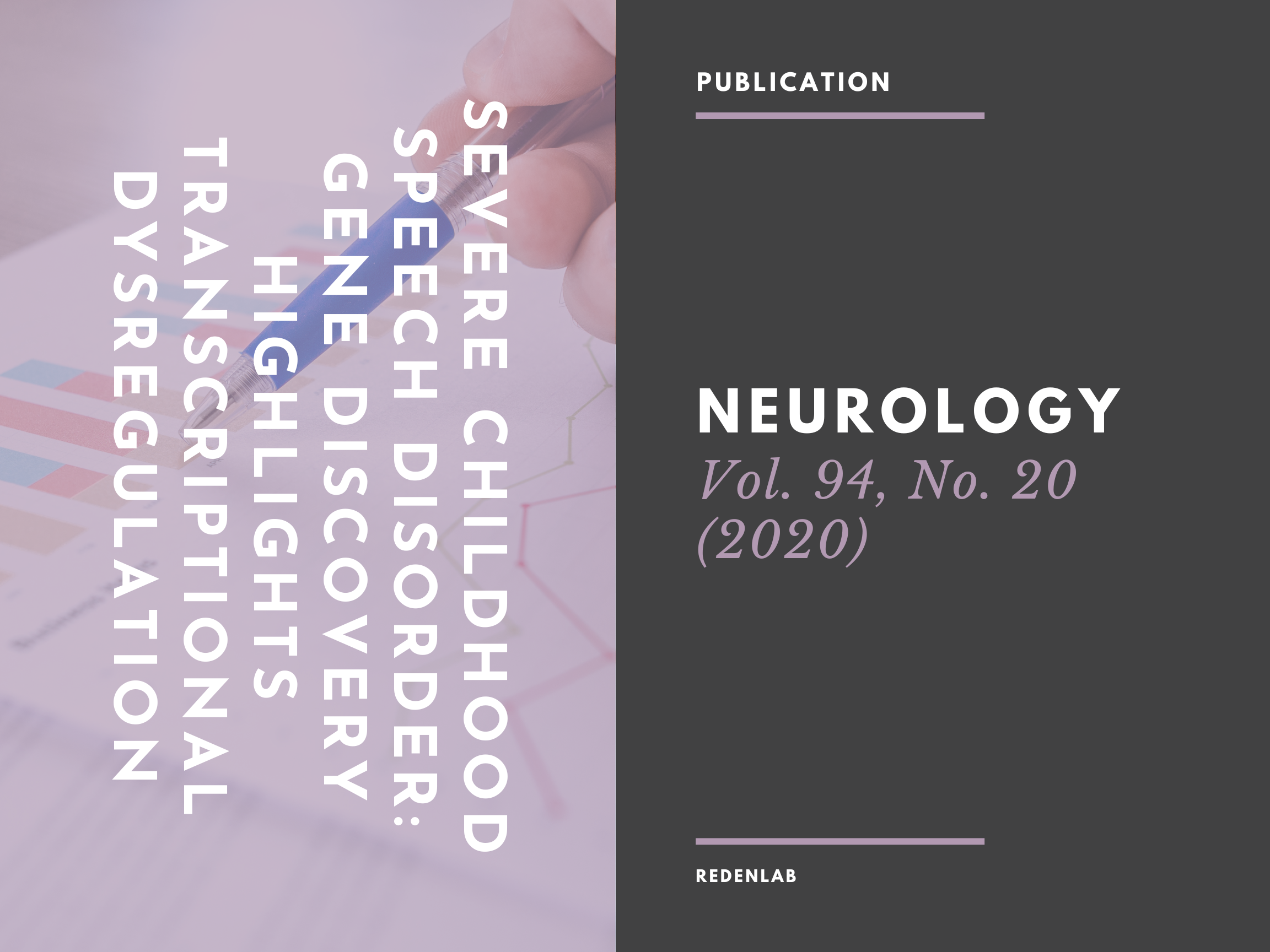Severe childhood speech disorder: Gene discovery highlights transcriptional dysregulation

Objective Determining the genetic basis of speech disorders provides insight into the neurobiology of human communication. Despite intensive investigation over the past 2 decades, the etiology of most speech disorders in children remains unexplained. To test the hypothesis that speech disorders have a genetic etiology, we performed genetic analysis of children with severe speech disorder, specifically childhood apraxia of speech (CAS).
Methods Precise phenotyping together with research genome or exome analysis were performed on children referred with a primary diagnosis of CAS. Gene coexpression and gene set enrichment analyses were conducted on high-confidence gene candidates.
Results Thirty-four probands ascertained for CAS were studied. In 11/34 (32%) probands, we identified highly plausible pathogenic single nucleotide (n = 10; CDK13, EBF3, GNAO1, GNB1, DDX3X, MEIS2, POGZ, SETBP1, UPF2, ZNF142) or copy number (n = 1; 5q14.3q21.1 locus) variants in novel genes or loci for CAS. Testing of parental DNA was available for 9 probands and confirmed that the variants had arisen de novo. Eight genes encode proteins critical for regulation of gene transcription, and analyses of transcriptomic data found CAS-implicated genes were highly coexpressed in the developing human brain.
Conclusion We identify the likely genetic etiology in 11 patients with CAS and implicate 9 genes for the first time. We find that CAS is often a sporadic monogenic disorder, and highly genetically heterogeneous. Highly penetrant variants implicate shared pathways in broad transcriptional regulation, highlighting the key role of transcriptional regulation in normal speech development. CAS is a distinctive, socially debilitating clinical disorder, and understanding its molecular basis is the first step towards identifying precision medicine approaches.
Click here for more details
